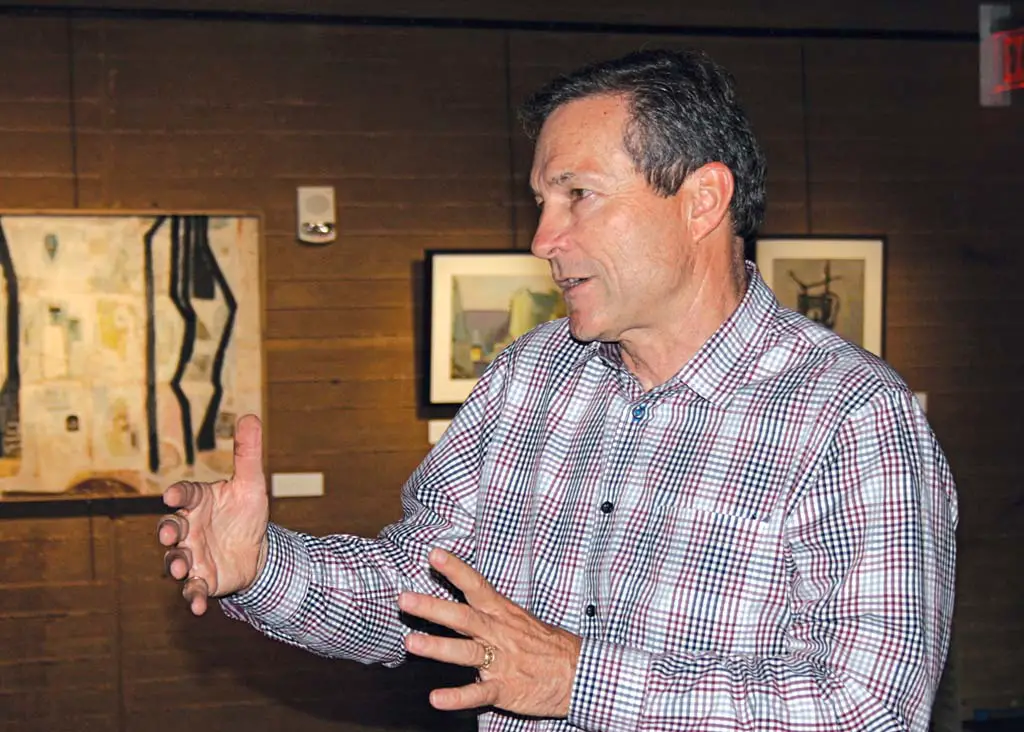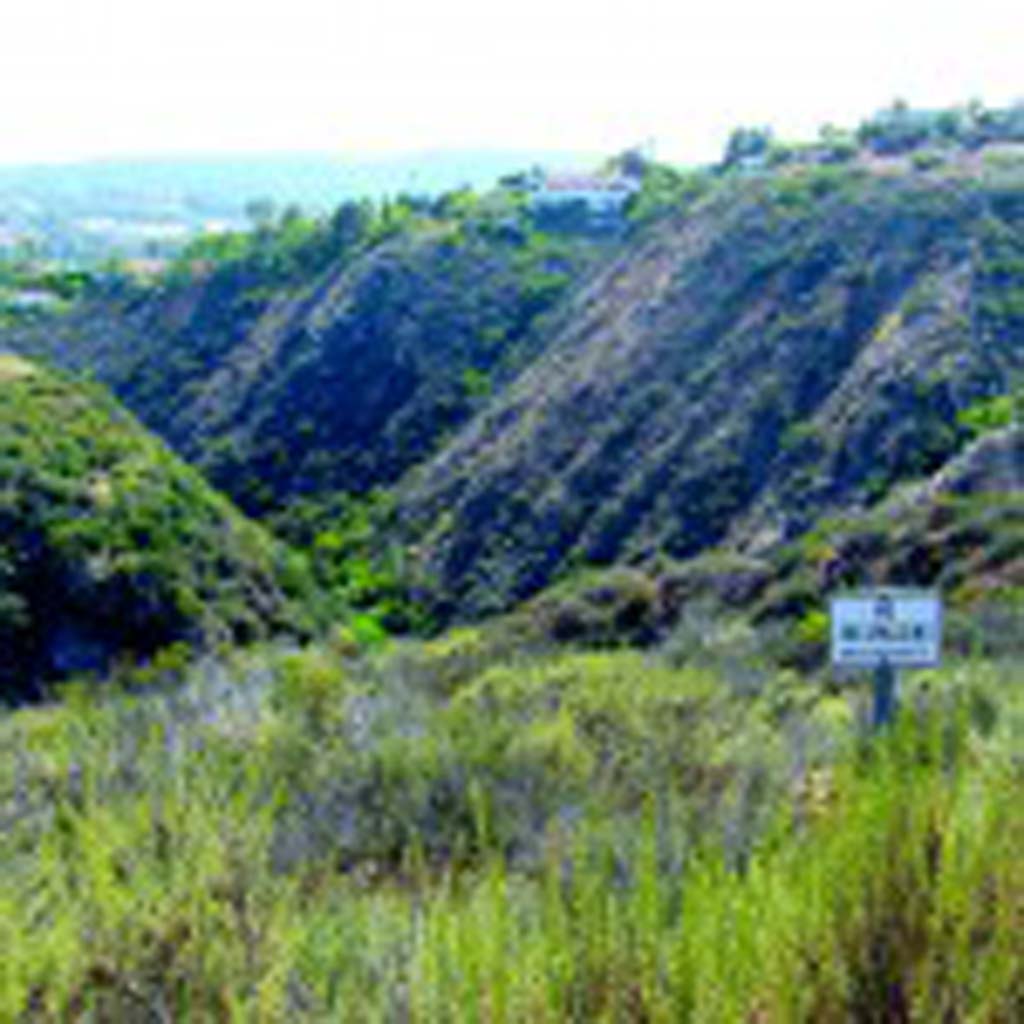ENCINITAS — Though the topic of a recent library workshop was officially climate change, presenter Eric Larson admits he is not an expert on carbon footprint. What he does know a lot about is water and farming.
Larson, San Diego Farm Bureau executive director, spoke at the Encinitas Library on May 27 and shared an overview of California water systems, the impact of the drought and solutions that need to be implemented.
California is facing a water supply shortage due to the current four-year drought that follows previous dry years.
Larson said state water systems also have flaws that add to the shortage. One chief fault is the lack of water storage facilities.
“CliffsNotes” on the talk are storage systems were designed around water runoff from winter snowfall in the Sierra Mountains. Since there was very little snow last year, there is less water in storage.
Other factors that add to the problem include the Salton Sea.
The manmade lake was accidentally created when the Army Corps of Engineers channeled the Colorado River, and it got away from them. The unintended lake has become an essential stop on the Pacific Flyway for migrating birds.
Since the lake was formed it has stayed full from farm runoff, which carries pesticides, salts and other pollutants.
After 25 percent of farm water was transferred to residential use, the lake has started to dry up and toxic dirt is exposed and stirred up by winds.
Larson said the solution might be to give the water back to Coachella Valley farmers to prevent further lake evaporation and health risks.
Developing more local water sources was also discussed.
Larson said desalinating ocean water is costly, uses a lot of energy and is currently an impractical way to secure a large amount of potable water.
“We’re not going to desal our way out of this drought,” Larson said.
He suggested a better option is to treat reclaimed water to the degree it can be used by residents.
Larson said the term “toilet to tap” set back consumer buy-in of the idea.
He added it is a common sense, cost-effective way to ensure more water.
Lawson said current water reduction mandates do not credit development of local water sources, and lack of recognition may discourage further efforts.
He added mandated reductions are a lifestyle change for residents, but a livelihood change for farmers.


